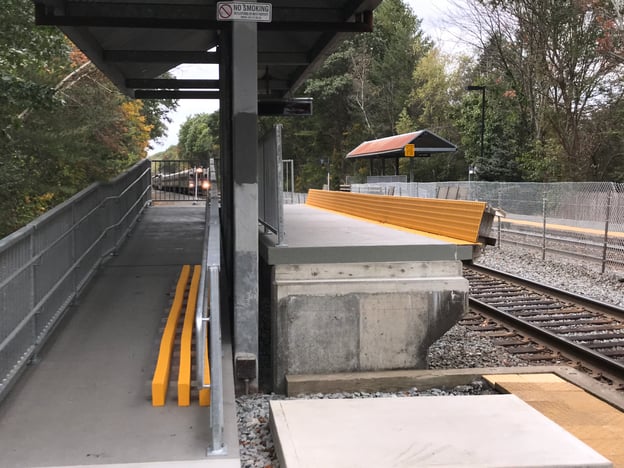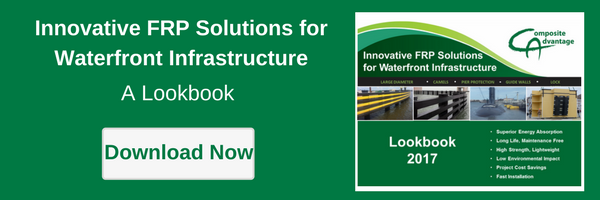
Composite Advantage recently supplied FRP rail platform panels for the rehabilitation of two mini-high accessibility platforms at the Massachusetts Bay Transportation Authority (MBTA) West Natick station. Projects like these, especially those with new applications for FRP, are a great chance for us to learn more about a customer’s operations. These mini-high platforms are no exception.
In short, mini-high platforms provide a level train boarding surface for individuals with mobility restrictions. They're located at the end of at-grade platforms and provide accessible boarding at the front or back cars of a train. The platforms consist of ramps and elevated loading sections, while meeting the slope requirements for accessibility. The loading platform section matches the rail car door height. Click here for more information and a list of MBTA locations with mini-high platforms.
The impetus behind features such as mini-high platforms stems from public demand and, subsequently, Federal laws mandating easier access. In 1990, Congress passed the Americans with Disabilities Act (ADA), prohibiting discrimination of persons with disabilities in employment, public services, public accommodations and telecommunications. The U.S. Equal Employment Opportunity Commission (EEOC), first established to "give life to...the Civil Rights Act of 1964," was charged with enforcing the ADA. Modeled after the Civil Rights Act of 1964, ADA has proved to be an "equal opportunity" law for people with disabilities.
The mini-high platforms offer an insightful example of how MBTA is working to meet the requirements of ADA, while harnessing the many benefits of lightweight, long-lasting, easily-installed FRP materials.



